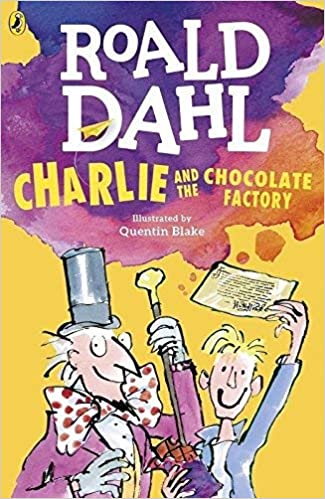Charlie and the Chocolate Factory book summary || Charlie and the Chocolate Factory summary || Book by Roald Dahl
This is a story about a boy whose name is Charlie he lives with his parents and grandparents in a tiny shack in the outskirts of the city. His family is poor, as Charlie's father works as a toothpaste capper, and everyone eat very limited meal. In the newspaper, Mr. Willy Wonka, who is the owner of a successful candy company announced a contest in which five golden tickets have been placed in Wonka candy bars. The five children who will find the golden tickets will be allowed to enter the chocolate factory and will win a lifetime supply of candy. Charlie is excited about the news as all children's, but then realizes that because his family is poor and cannot afford to buy candy, he become sure that will mostly not win. Soon, in the newspaper reports that tickets are being discovered by various children. Charlie tried to win by opening two chocolate bars, but he did not find any ticket. After few Weeks the family has seemingly forgotten about the golden tickets as Charlie's father has lost his job. With an empty stomach, Charlie walks outside and finds a dollar on the street. He went to a candy shop and buys two candy bars. Luckily this time he find a golden ticket. Charlie's family is excited about this discovery and Grandpa Joe agrees to go with Charlie to the chocolate factory the next day. The long-locked gates of the Wonka factory are opened and the five children and their families are greeted by Wonka, a exuberant fellow with flare and wit. There was a show organised by Wonka around his chocolate factory,introducing them to all of his candy inventions. He also introduced the group to the Oompa-Loomp as a small race of people who love chocolate and work in the factory. As the tour goes on, all of the children except Charlie misbehave and get taken away. In the end, Wonka explained that the golden ticket contest was just a way to find someone who could inherit the factory. Charlie accept the offer and his entire family moves in.
First, this story highlights poverty. As a readers, especially young readers, the concept of poverty may not be fully understood to them. The term "poor" is often used loosely as in "I'm so poor that I can't buy that toy". But this story better defines the term by portraying one family that better reflects the actual definition of the word. Charlie's family is destitute. As they were Living in a two-room shack, they are getting by with one paycheck to feed seven people, eating bread and cabbage stew for each meal. More importantly, though, a destitution does not come to define Charlie. Yes, it limits him from buying a large amount of candy bars, but he still is a smart and hardworking individual with good character. In contrast, there are the other golden ticket winners whose condition maybe be different from Charlie. Collectively, those children represent the different types of misbehavior that children often engage in. There is the over eater, spoiled brat, gum-chewing competitive kid, and TV watcher as they were from different family and financial background. Each of these characters are over-exaggerated to a satirical level in hopes that children can understand that these behaviors are unacceptable. But the children are not the only one responsible for their bad behavior. It is the parents. Wonka invites two parents to accompany each golden ticket winner not just for supervisory reasons, but so that we can see from where these children learned their bad behavior. They had to learn it from somewhere and these parents are enablers, doing nothing to stop it. And so even though the contents of this story may be for children, there is a sprinkle of meaning in it for adults too. Behavior of a child id the complete reflection of his surroundings and parents.


Comments
Post a Comment